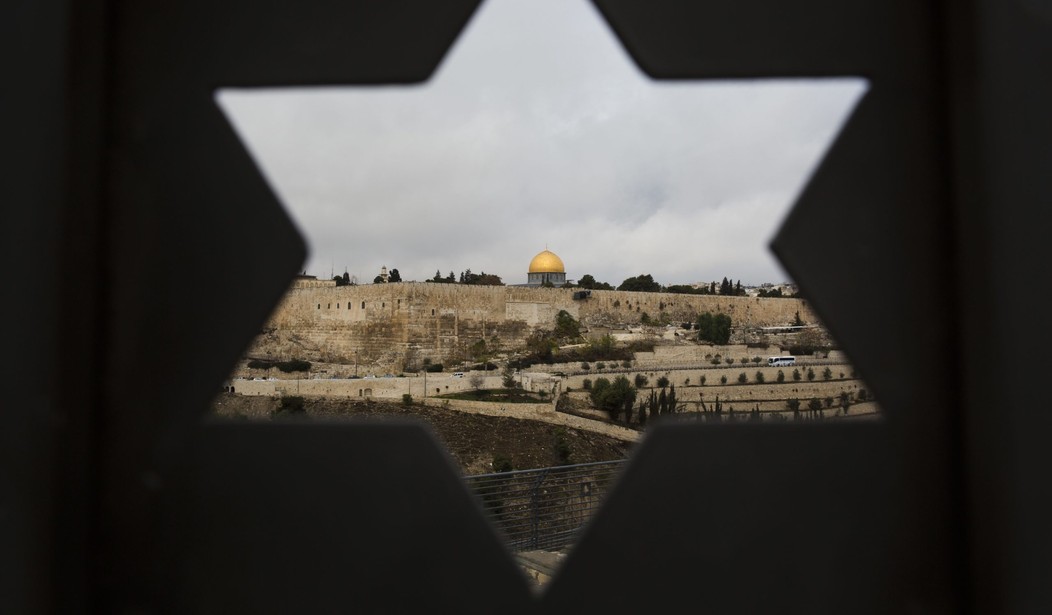As of Tuesday evening and Wednesday, Israel turns 72. But something—to paraphrase the Haggadah, the text that’s read for the Passover ceremony earlier in the spring—makes this Independence Day different from all others: we’re under a strict lockdown, the strictest yet since the COVID-19 era began.
Although, as in many other countries, restrictions are gradually being eased, today they’re back in full force because the government fears the effects of intermingling and, particularly, of large gatherings.
It means that, for this day, we’re not supposed to stray more than 100 meters from our homes. Even grocery stores are closed. The police have set up 44 roadblocks to prevent intercity travel. The usual public events are canceled.
But one of the most popular of them—the annual flyby of air force planes—will happen on a smaller but still significant scale. As the military announced: “Four Efroni planes will fly over the country’s hospitals and salute the efforts of medical teams and the entire healthcare system, who are fighting the war against the coronavirus.”
Despite this mostly quiet, subdued Independence Day, there is—as in other years—much to celebrate. The annual demographic data are in from the Central Bureau of Statistics, and they’re distinctly upbeat.
The Israeli population is now well over nine million at 9,190,000—an increase of 171,000 over last year. Seventy-four percent are Jews, 21% Arabs and Druze, and 5% “other”—mostly Russian immigrants of Jewish descent who are affiliated with the Jewish population.
That’s compared to 806,000 people 72 years ago at the time of Israel’s birth—more than a tenfold increase. By the time of Israel’s 100th birthday in 2048, the number is projected to rise to 15 million. With Israel now ranked the eighth most powerful country in the world, that sounds like a very thriving and powerful country.
And while—despite divisions—social solidarity among the mainstream Jewish population has always been strong, this year—apparently under the impact of the COVID-19 crisis, which has forced the different population groups to work closely together to counteract it—that solidarity seems to have reached a peak in the society as a whole.
A survey found 90% of Israelis saying they “feel that they are a part of Israel and share its problems”—including 92.5% of Jewish Israelis and 77% of Arab Israelis. For the Arab Israelis—who ranged from 35% to 62% on that question in the previous six years—that’s a particularly high figure. And as for ultra-Orthodox Jewish Israelis—also sector that’s had a hard time coming to terms with the Jewish state—the figure surged from 68.5% a year ago to 93.5%.
Are these results artifacts of the crisis, a flash in the pan? Maybe—but probably not, as the gradual trend among both sectors has been toward greater appreciation and affiliation with a country that enables them to be who they are and live a good life.
And another piece of good news—albeit tentative, with Israel still mired in a political crisis and trying to form a government—is that the country appears set to grow physically as well. This week the U.S. State Department announced that: “We are prepared to recognize Israeli actions to extend Israeli sovereignty and the application of Israeli law to areas of the West Bank that the vision [i.e., the Trump peace plan] foresees as being part of the State of Israel.”
It’s a green light for annexation of Israel’s critical security border, the Jordan Valley, and of Israeli communities (“settlements”) in the West Bank—a step strongly favored by Prime Minister Benjamin Netanyahu and acquiesced in by opposition leader Benny Gantz. According to the still-unconsummated coalition deal between them, it’s supposed to happen in July.
The State Department adds that:
The annexation would be in the context of an offer to the Palestinians to achieve statehood based upon specific terms, conditions, territorial dimensions and generous economic support. This is an unprecedented and highly beneficial opportunity for the Palestinians.
True—and one that their West Bank leadership, let alone the Hamas leadership in Gaza, is turning down flat. The message from Netanyahu and from the Trump administration: Israel will not wait passively forever for Palestinian moderation that’s still not on the horizon. It’s a welcome message, one enabling Israel to move forward and secure its own interests without an OK from the perennial rejectionists in Ramallah and Gaza.
On a personal note, having moved to Israel in 1984, I’ve now been here 36 years—that is, exactly half of its 72-year history as of this Independence Day. In that time I’ve seen it grow rapidly from a country that was still in many ways a socialist backwater to an incredibly vibrant startup nation. While enemies—these days mainly Iran and its terror proxies—are still out there trying to destroy it, it’s fair to say that Israel is doing much better than they are.
P. David Hornik, a longtime American immigrant in Israel, is a freelance writer, translator, and copyeditor living in Beersheva. In addition to PJ Media his work has appeared in FrontPage Magazine, National Review, New English Review, American Spectator, American Thinker, The Times of Israel, the Jerusalem Post, and elsewhere. Among his books are Choosing Life in Israel and the novel Beside the Still Waters, which was published by Adelaide Books in 2019.









Join the conversation as a VIP Member